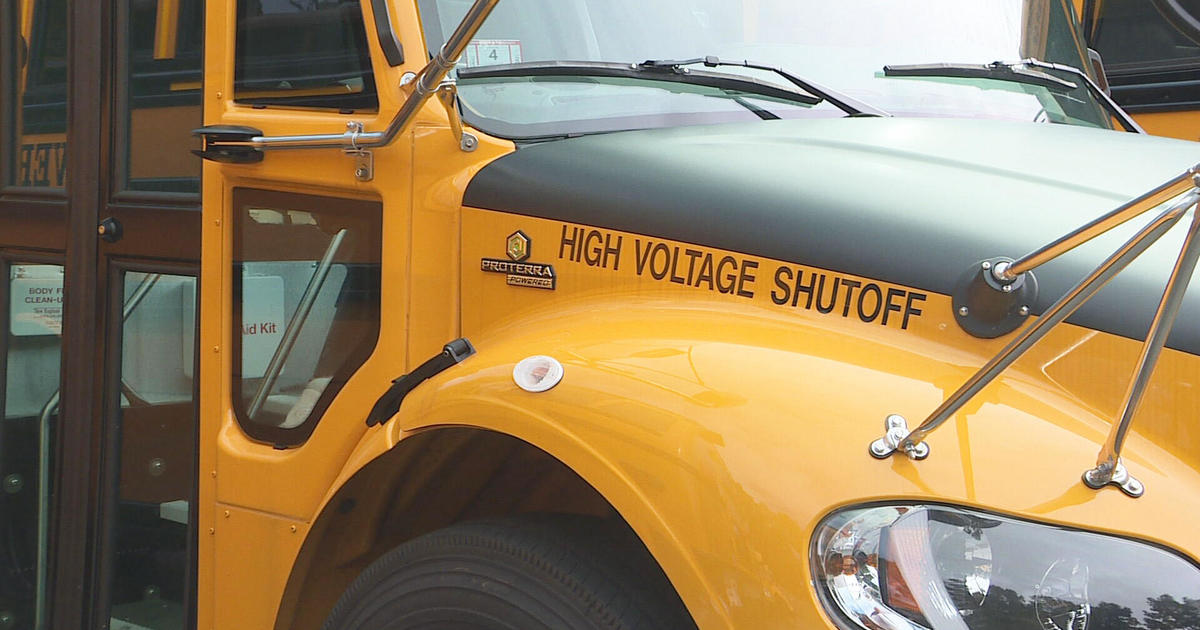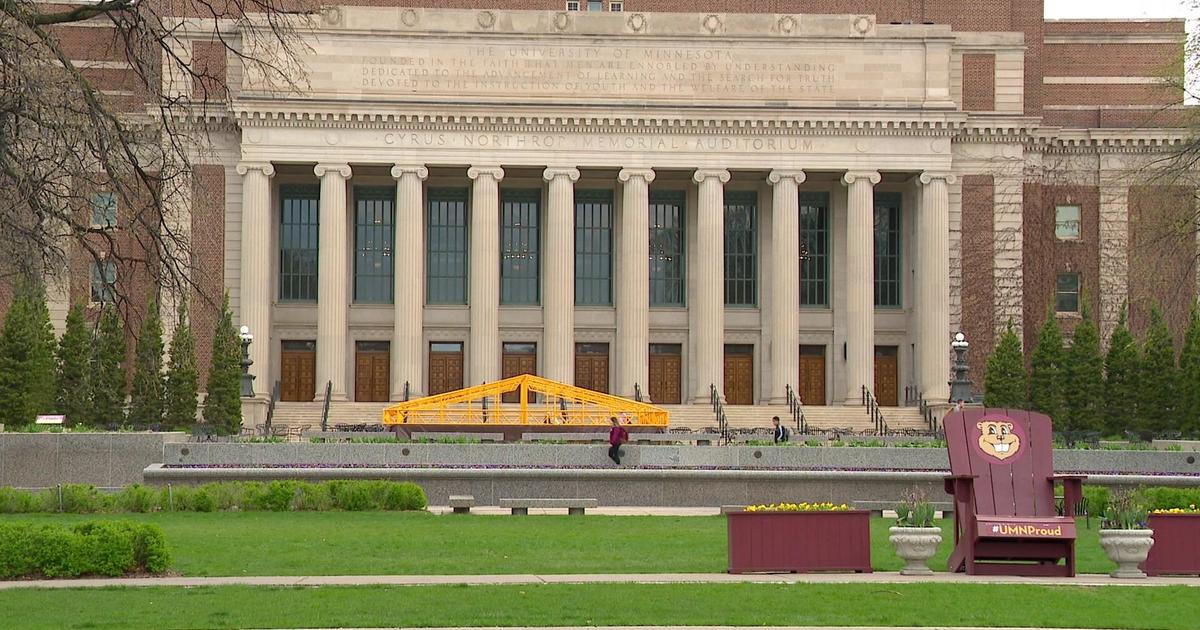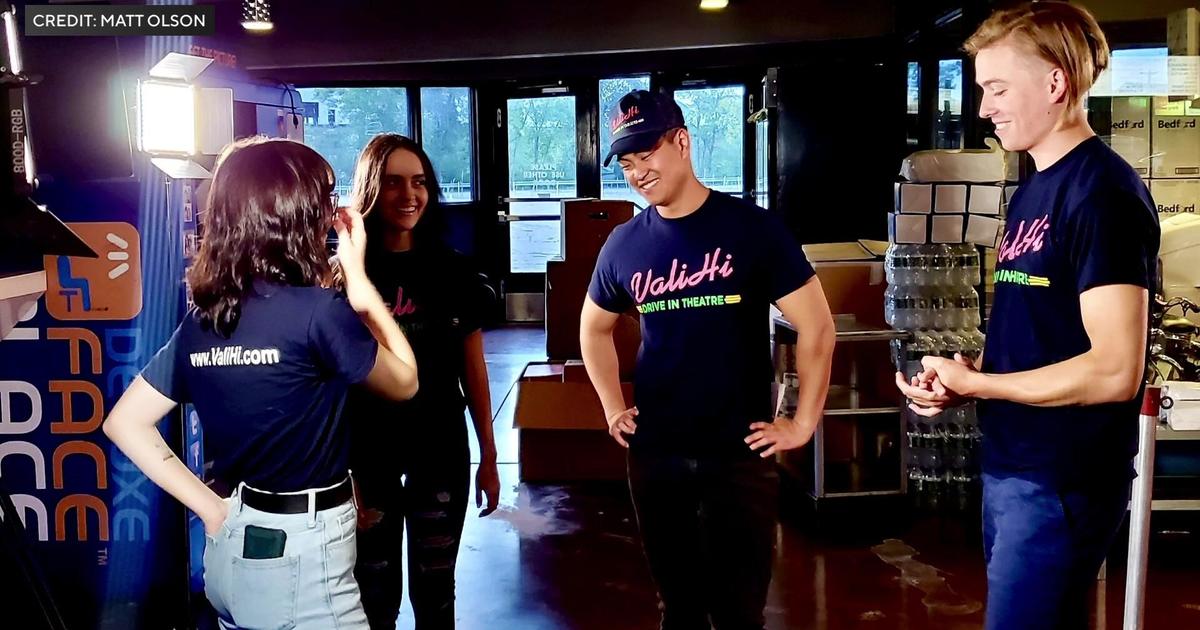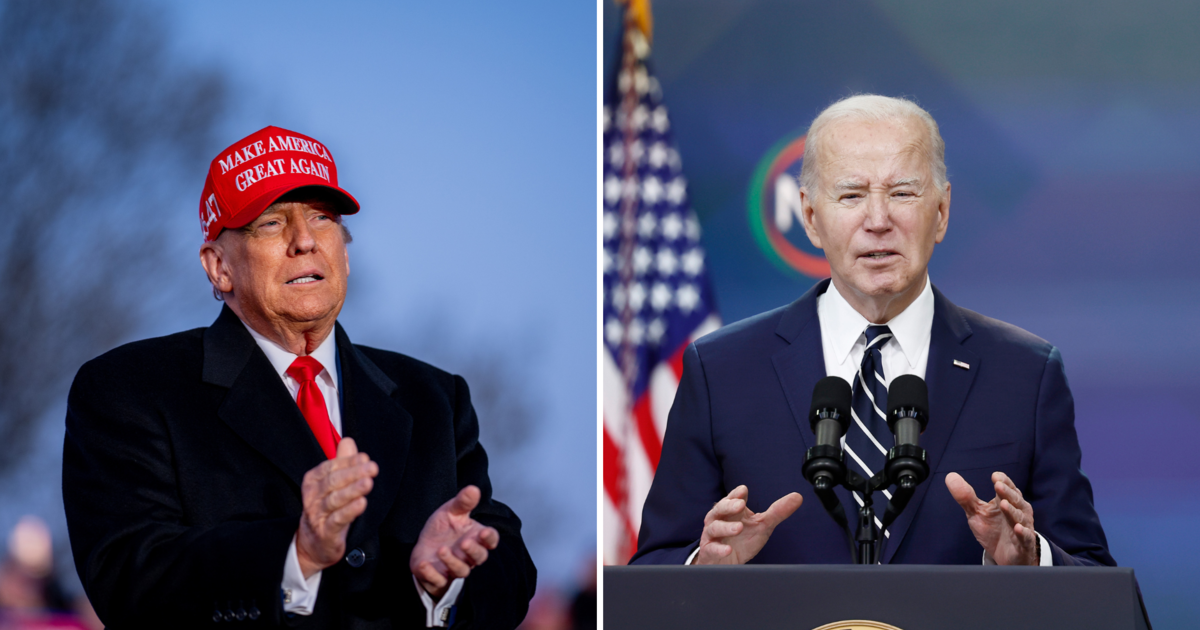Angie Craig: 2020 Election Guide
Welcome to WCCO.com's 2020 political guide!
We reached out to all Minnesota candidates running for U.S Senate and U.S Congress this fall. Candidates were asked to provide a two-minute video discussing their platform as well as answer a set of our viewers' questions.
Above is the video and below are the answers Angie Craig provided. This is not a paid advertisement nor does WCCO endorse any candidate.
Responses from Angie Craig, Democratic candidate for the 2nd District:
Do you believe racial disparities exist in Minnesota and across the country? If so, what policy changes would you propose to combat this?
There is no doubt that racial disparities exist in Minnesota and across the country. By almost any measure, the statistics prove that racial and ethnic inequality is a fact of life in the United States. The federal government has the responsibility to help address these disparities – whether they are reflected in the educational achievement gap, healthcare, homeownership or within our criminal justice system.
I've worked with both our community and our local law enforcement to find common ground in police reforms as well as ways to close the achievement gap and begin to address historic health inequities.
Do you believe the federal government's handling of the COVID-19 pandemic has been adequate? If not, what could have been done differently? Do you believe there should be a national mask mandate?
The administration and the President have failed us during this public health crisis. They did not develop a national strategy for testing, contact tracing or ramp up production of personal protective equipment for our healthcare leaders and first responders. They have not led through science nor by example. Worse, they have created chaos and confusion as it relates to public health.
This has had a devastating impact on our economy.
Congress's initial willingness to come together on a bipartisan basis and do what it took to help the country persevere in the early days of this crisis was encouraging. I'm extremely disappointed that is not still the case. The CARES Act provided desperately needed resources for state and local governments, for hospital and health systems, extended a lifeline to struggling small businesses around the country, and expanded unemployment benefits for the millions of Americans who found themselves out of work as a result of the pandemic. My bipartisan bill to expand the Paycheck Protection Program for an additional five weeks – which the President signed into law this July – is an example of the important progress we can make when both parties come together
The American people deserve a national plan to contain and combat COVID-19 but sadly, we still don't have one. To rectify that, my colleagues and I introduced bipartisan legislation to end testing shortages and provide states with the tools they need to identify and suppress outbreaks. Hospitals and public health officials across the country have been frustrated by unfilled orders, delayed deliveries and sharp price hikes. We've all seen the videos of nurses and doctors who were forced to improvise their own protective gear and reuse disposable masks just to protect themselves from infection. The White House's response was convoluted, slow and inexcusable. That's why I called for the appointment of a supply chain czar and introduced legislation to strengthen our supply chains for critical health care equipment – to make sure this never happens again.
Nearly 200,000 Americans have died, cases are on the rise in many parts of the country and millions of Americans are filing for unemployment benefits each and every week. A public health crisis such as this requires steady, consistent and disciplined leadership that relies on the medical experts and encourages unity in the face of an existential threat. In that regard, this Administration has failed. It didn't have to be this bad. We can – and must – do better.
What policy changes would you propose to jump-start the economy in the wake of the COVID-19 pandemic? Should the federal government pass an additional stimulus bill? If so, what should it include?
I stand with every small business, every Minnesotan struggling to find work and all of the frontline workers keeping us safe. COVID-19 is threatening the American Dream on main streets across the Second District. Minnesota businesses need real relief now more than ever and it's our responsibility to make sure that we are doing that. Earlier this summer, the President signed my bipartisan bill into law to extend the Paycheck Protection Program, which extends forgivable and interest free loans to struggling businesses across the country. In Congress, I'll continue to encourage Democrats and Republicans to put politics aside and work together on behalf of our first responders, our local communities and the small businesses that need help the most.
But even before the pandemic, far too many hardworking families were being left behind. We need to make sure more people have the opportunity to share in the benefits of our growing 21st-century economy. As we move forward, my top priority is to make sure our economy works for all of us, not just those with the wealthy or well-connected. Americans who work hard, play by the rules, and do their best should be able to afford a middle-class life, save enough money for a secure retirement and secure a good education for their kids.
As our country continues to endure the economic challenges of this crisis, we must begin to think about how we put people back to work in the jobs that build our communities and critical American infrastructure. Congress must use tax incentives to encourage American businesses to bring back the jobs that have been shifted overseas and revitalize American manufacturing. We need to develop more opportunities for career and technical training in Minnesota. A four-year degree isn't for everyone, and right now, students are living in a world of uncertainty. We should be highlighting and expanding the many opportunities made available to young workers through trade programs in Minnesota and across the country.
What do you think is the root cause of the civil unrest in our community and across the country?
Peaceful protests against injustice are fundamental to our nation and critical to our American democracy. I am deeply empathetic to those who are using their voice to call for justice and those who are protesting peacefully to ensure that their communities are safe regardless of the color of your skin. However, there is a clear distinction between protesting and lawlessness. Rioting, looting and starting fires are not protesting – and those who choose to engage in those actions must be held accountable.
We are at a critical juncture in American history as we begin a long overdue conversation about the issue of systemic inequality that pervades so many aspects of our society. The past few months have sparked some painful but necessary conversations about racial inequality across our state and our country. Over the past few months, I've spent a great deal of time listening to community members across our district about how we can address these challenges and come together as a nation. I've joined community members in West St. Paul for a listening session and talked with students in the Black Honor Association at Eastview High School. I've talked with sheriffs, police chiefs, mayors, county commissioners and faith leaders.
In those conversations, I have heard Minnesotans from every walk of life express largely the same goals and aspirations. We must do more to address systemic racism in this country. We must do more to ensure that our nation's criminal justice system treats every American the same – regardless of the color of their skin. And we must spend more time focusing on what unites us – rather than what divides us. But in order to do that, we need to come together as a country – to allow our wounds to heal – and to look out for one another as we work together to create a more perfect union.
Do you believe that funding for police departments should change, and if so, how should those funds be redirected? Should the federal government implement national police standards?
I do not support defunding the police, but I am fully supportive of addressing systemic racism. I believe that we can support common-sense policing reforms and support law enforcement. I have voted twice to increase funding for our local police departments for community-oriented policing. Our country needs both a more just law enforcement system and our valued police officers to truly keep our communities safe. And I believe that we can accomplish both of those goals if we work together.
The federal government has a role to play in ensuring that our criminal justice system is fair and just for all citizens. In pursuit of that goal, I cosponsored and helped pass the George Floyd Justice in Policing Act - a wide-ranging bill to promote accountability in policing. In fact, many of the law enforcement departments in our district already ban choke-holds and many welcome the opportunity to ensure that they can more easily fire officers who are not living up to their expectations.
Do you believe the government should subsidize broadband internet access for rural areas? Should public school districts reimburse families for the cost of distance learning?
As a member of the House Task Force on Rural Broadband, I am fully committed to the goal of bringing high-speed internet to every American by 2025. I understand that, in a 21st century economy, expanding rural broadband access will expand economic opportunity for thousands of hardworking Minnesotans. And in the wake of COVID-19, the need to expand access to high-speed broadband in rural America has never been more urgent.
In Congress, I helped introduce the Accessible, Affordable Internet for All Act, which would invest $100 billion to build high-speed broadband infrastructure in communities across the country that have been underserved for decades. I also cosponsored the Accelerating Broadband Development by Empowering Local Communities Act of 2019 to roll back regulations that limit local governments' abilities to enact their own solutions for deploying 5G broadband technology in their communities. I am fighting to ensure that, with quick and reliable broadband access, even the smallest towns and communities can compete with the rest of the world.
Do you think the current Minnesota gun laws are adequate? If not, what changes would you make?
I'm living proof that it's possible to believe in the Second Amendment while also supporting common sense legislation that will make America a safer place to live and raise a family. I'm a proud gun owner, member of my local gun club and mother to two sons who hunt and trap shoot. I believe my support for the Second Amendment goes hand-in-hand with doing everything I can to keep our children and communities safe from gun violence. I understand that it is the responsibility of elected officials to implement common sense gun safety measures that will help to keep our children and communities safe from gun violence.
While we have made some progress in strengthening our gun laws in this country, there is still work to be done to ensure that all Minnesota families are safe from gun violence. That's why I supported an effort to allow the CDC to research gun violence in America for the first time in two decades, voted for universal background checks and support laws that keep guns out of the hands of criminals, domestic abusers and people with mental illnesses.
Do you support legalizing the recreational use of marijuana?
Yes, I support the legalization of marijuana for recreational use for adults over the age of 21. I am supportive of individual states taking steps to legalize recreational marijuana in ways that make sense in local communities, and I am hopeful that these changes will improve the historic enforcement inequities of our drug laws. I am also supportive of legislation that would allow legitimate marijuana businesses to participate in the banking system.




